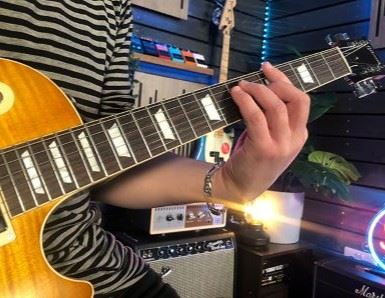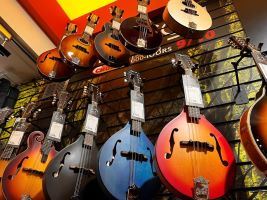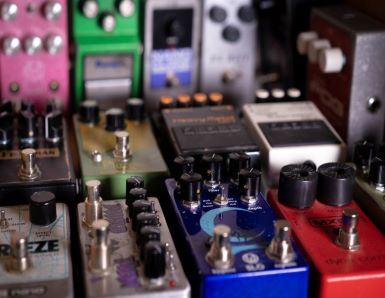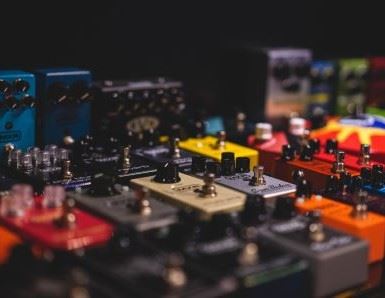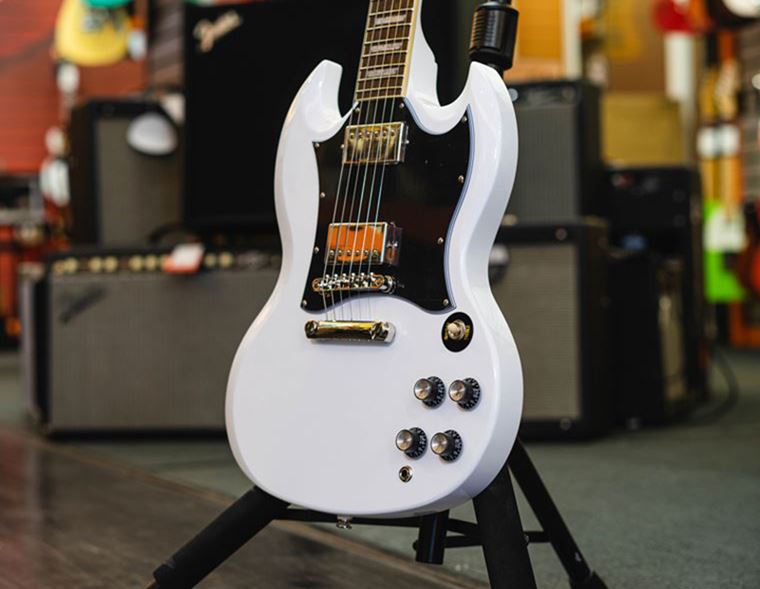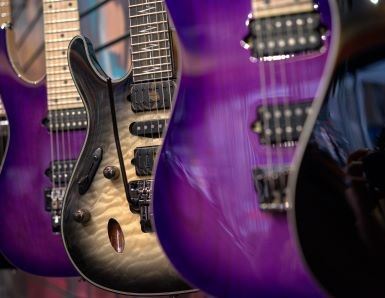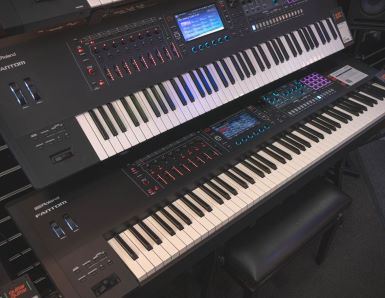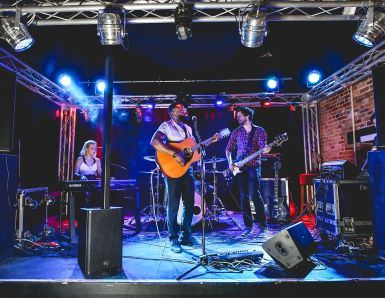Guide to Gigging for Guitarists
Disclaimer: The information in this article is provided by the guest blogger and does not necessarily reflect the views and opinions of guitarguitar.
We've all seen articles and videos online regarding the do's and don'ts for the would-be gigging musician. After ten years of playing a variety of small venues and bars I thought I'd put together a list of my own hacks accumulated over the years that'll give a smoother experience performing live and all the preparations that go with it.
This isn't an exhaustive list, and you'll no doubt find your own pearls of wisdom after just a handful of live shows. But this will hopefully be a useful guide to any young axeplayer ready to cut their teeth with a live band.
These are tips on how to start gigging as a guitarist for those starting out; so it's going to mainly apply to the younger generation who will play bars, pubs, small live venues, high schools and the like.
1. You Don't Need to Change Your Strings Before Each Show
The bigger touring bands have techs that do this. And many have product endorsements so they get them free, or buy them wholesale. String changing at a small venue isn't ideal, although you should take a spare set if needed. If you prefer the sound of new guitar strings and are insisting on changing them for a gig, then always change them well before you leave, or better still, the night before. This allows you to redeem any mishap that would entail tearing open yet another pack, and also gives you time to stretch them in, minimising tuning problems during your set.
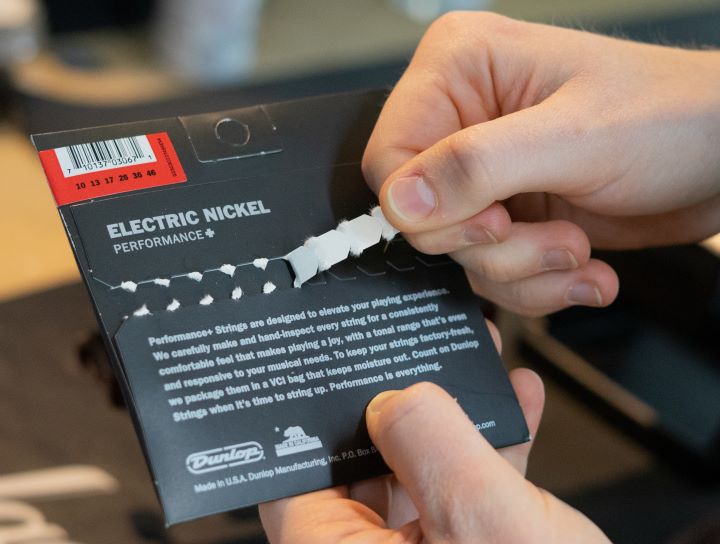
2. Always Take a Back Up Guitar
This is common sense. It doesn't need to be the same high quality as your main pride and joy, but it’s always worth having a back up. There are some great budget guitars out there. But use one that you're comfortable with and sounds good should your first choice die on you mid set. Snapped strings and electrical faults are the bane of the live guitarist, and likely you'll run over your time slot remedying such gremlins with repairs and string replacements. This will annoy not only the sound guy, but bar staff, other bands and the local council. The show must go on, and a backup guitar will fix that problem faster than a string change or a soldering iron.
3. Use a Quality Gig Bag
A gig bag is great for carrying odds and sods you may need on the night. They're also lightweight, which is the performing musicians' dream. For long distances a hard case is the way to go, but for the local club circuit a padded gig bag will do fine. There's usually plenty of pockets that allow for cables, strings and other accessories you may need too.
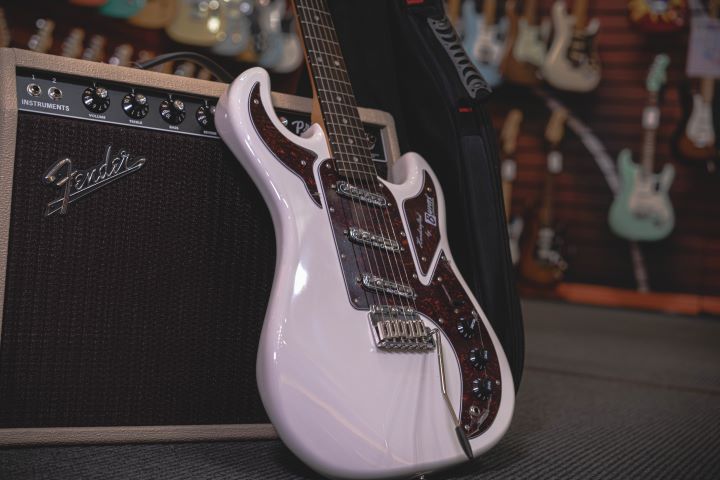
4. Use a Pedalboard
Avoid carrying your guitar pedals in a bag whenever possible. They'll get scratched and could be damaged. You'll also need to set up quick and easy. A pedalboard will keep your arsenal of stompboxes not only safe but readily assembled when it's time for soundcheck and also for packing away (as said earlier, you'll be the scourge of the local scene if you don't get off the stage in a timely manner). You don't want to be plugging patch cables in and out for every gig and rehearsal either. You can purchase pedalboards in a variety of sizes, whether you're a budding John Frusciante with a starship control room at your feet, or going with the classic vibe of a simple fuzz, phaser, and of course a tuner pedal.
5. Use Labels and Stickers on the Back of the Amp
A bit of an unusual one this, but pay heed. You'll find it very dark behind the guitar amp when you're trying to plug in cables in an already dimly lit venue, as the writing on the amp is usually small and hard to read, especially in poor light. The torch on your smartphone may not be enough to see, so DIY stickers with FX OUT, FX IN, FOOTSWITCH etc in large print can really save the day when setting up.
6. Get Some Strap Locks
A common one, and for good reason. Your strap slipping from the guitar is about as funny as toothache. If it happens once it'll happen again quickly.
Dunlop and Schaller make excellent strap locks. And you can always buy additional buttons for them for all your other axes if needed for just, well, buttons.
7. Be Nice to Everyone
EVERYONE. And not just the sound guy and your bandmates. Always make the effort and don't be aloof. Think of your band as a small business and make the effort socially. Being unprofessional and diva-like will not go down well either. Keep your cool if things go wrong as this can happen from time to time. Don't whine about the headline band receiving more than you. Get into the right state of mind after load in and into the party mood. That's what the punters are there for, and you should be too.
8. Never Play Over Your Time Slot
Venues often have a strict cut off time as agreed with the local council and authorities. If you run over your allotted time slot, and there's a band playing after, they'll have to cut their set short, or even worse, not be able to play at all. The promoter or sound guy may pull the plug on you anyway, and rightly so.
9. Do a Dress Rehearsal
The would-be Kurt Cobain who arrives in t-shirt and jeans may wish to skip this one. But many bands go for a certain look onstage, and as Lemmy once said, the audience didn't pay to see the boy/girl next door perform, they want to see the creature from out of space. Jewellery, platform shoes and tight leather can be uncomfortable and often hinder performance (onstage and backstage…). Have a couple of sessions in the rehearsal room in your new stage attire to iron out any creases with potential wardrobe malfunctions.
10. Adjust your Guitar Strap to Suit You
This depends massively on the difficulties of your parts. The more technical your playing is, the more you'll likely struggle with the guitar wrapped around your knees. It was a great look for Johnny Ramone, but always remember the music comes first, not looks. So have your guitar higher if needed for those neo classical runs and sweeping arpeggios. Granted, many shredders do like their guitar low (Nuno Bettencourt, Zakk Wylde) but don't be ashamed to have it at a sensible mid height, or even higher if it facilitates your style. Other guitarists won't scoff, they'll respect you for it and you'll perform better. And never make any last minute adjustments to your guitar strap without rehearsing your set first.
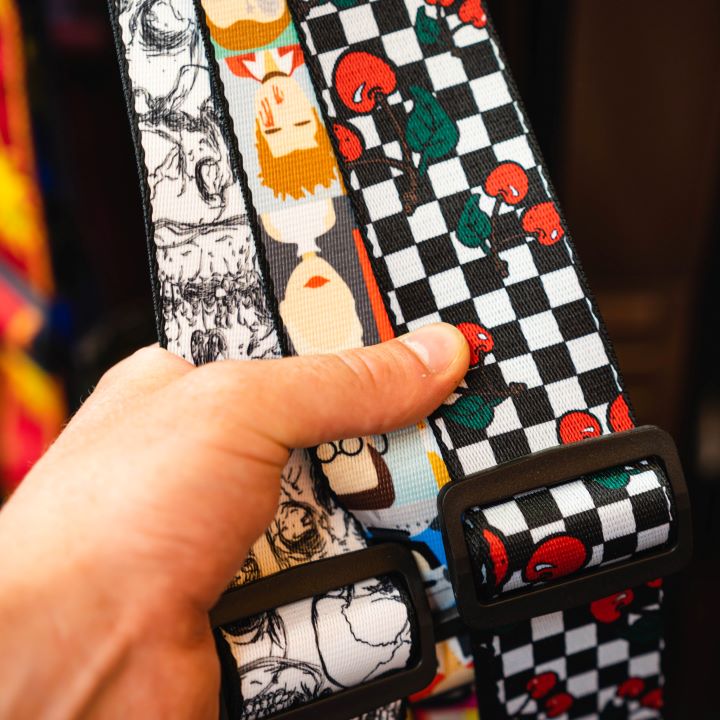
11. Avoid Last Minute Changes to your Gear
Never make any big changes to your gear without at least one full rehearsal, because rehearsals aren't just for practising the songs: they're for testing your gear too. Any changes to string gauges could mean you may not hit those pinched harmonics if you're not used to the new gauge and the guitar will likely need a set up too. In addition, any changes to amp settings and pedals, especially digital ones, are best avoided.
A cautionary tale here: for my first gig I used my noise suppressor pedal. This has two settings: reduction, meaning that when it's on, it's on, and when it's off it was off and the signal bypassed the pedal, simple, and the other setting, mute. But I stupidly decided switch it to mute after soundcheck. This meant when it was off the gate effect worked, and when switched on it was muted. I soon forgot I made this adjustment and spent the last third of the second number desperately trying to establish the fault.
12. Use your Effects Loop to its Full Potential
It's well known that reverb and delay effects can sound clearer in the loop, especially if you're using a lot of gain from the amp.
Additionally, any effect with a dB boost in the loop will work as a remote control for the master volume. This is ideal for soloing over another guitarist and especially if you're using a overdriven or distorted tone. Placed in front, your boost pedal will simply add more saturation, but in the loop this acts as an additional amp channel should you need one.
Volume pedals, clean boost pedals, some EQ and line selectors stompboxes (these allow you to connect multiple pedals to it, by switching them off/on in unison to avoid tap dancing) have a dB boost and will get your soloing skills heard and give your bands' overall mix onstage a professional edge.
13. Have a Good Time, All the Time (Gigging)
As touched on earlier, and it's fair to say this speaks for itself: enjoy yourself. It's hard work gigging. But we are doing this for a hobby and a way of life. And no matter how tight you are as a band you'll make mistakes, so just laugh them off. Also, leave important discussions with the band for another night when you've all got more time and feel more relaxed. This is the most important thing; get in the mood for the show and embrace the party atmosphere. It'll come across in your performance and you'll enjoy the night.
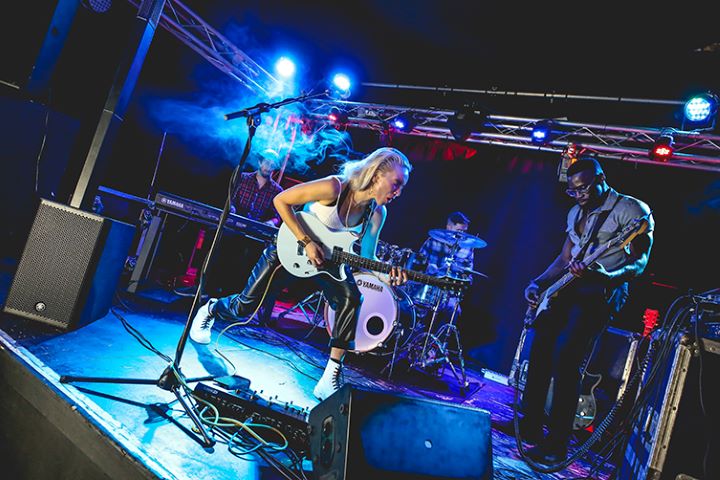
Author: Ian Fisher
Ian has been playing guitar for over 30 years and started gigging in 2012. He has been gigging with his heavy metal band Usurper since 2017. Check out the Usurper Facebook page.

